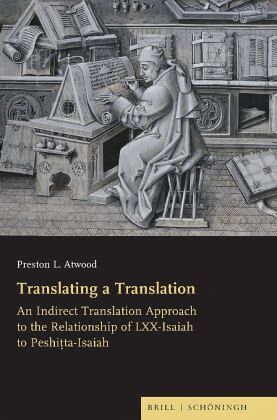Nicht lieferbar

Translating a Translation
An Indirect Translation Approach to the Relationship of LXX-Isaiah to Peshi_ta-Isaiah
Versandkostenfrei!
Nicht lieferbar
Using the model of indirect translation from modern translation studies, this monograph argues that the Septuagint translation of Isaiah played little to no role in the translation of the Peshi_ta of Isaiah.Since the mid-to-late nineteenth century, many scholars have argued that the translator of the Syriac Peshi_ta of Isaiah (200 CE) frequently consulted and/or translated the Greek Septuagint (140 BCE) at certain points during the process of translation (e.g., when encountering difficult lexis in their Hebrew source text). However, the study of this translational phenomenon has lacked methodo...
Using the model of indirect translation from modern translation studies, this monograph argues that the Septuagint translation of Isaiah played little to no role in the translation of the Peshi_ta of Isaiah.Since the mid-to-late nineteenth century, many scholars have argued that the translator of the Syriac Peshi_ta of Isaiah (200 CE) frequently consulted and/or translated the Greek Septuagint (140 BCE) at certain points during the process of translation (e.g., when encountering difficult lexis in their Hebrew source text). However, the study of this translational phenomenon has lacked methodological control. Applying indirect translation theory and methodology from modern translation studies to the Peshi_ta of Isaiah, this book argues that where the Peshi_ta of Isaiah and Septuagint of Isaiah agree (against their common Hebrew source in chapters 1-39), the "agreement" is almost always due to common translation technique, rather than direct influence from the older Greek text.



